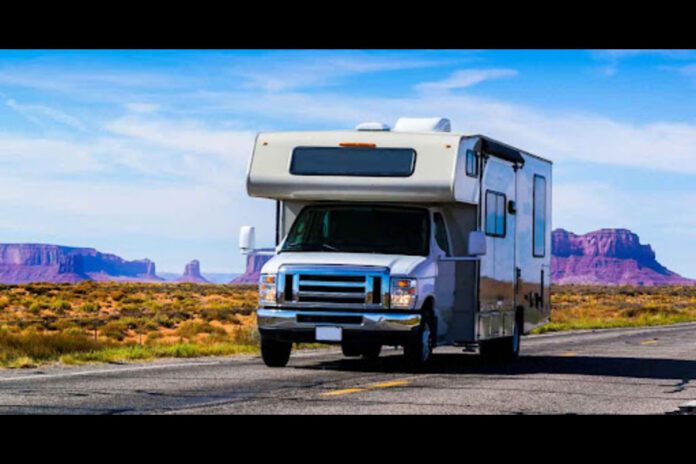Is it time to look for RV storage Houston area for the year? Follow our suggestions to get you started on the road to winter storage success.
After camping in your RV throughout spring, summer, and fall, it’s time to store it for winter.
Not only should you take care of the plumbing system before RV storage for winter, but there are other preventive steps you can also take. By following these tips, your RV will be in excellent condition and good to go when spring arrives.
TIP #1: Prepping the Interior for RV Storage
There are many methods to make your RV more pleasant while traveling, but one of the most essential is to keep an uncluttered interior free of food that might attract vermin.
To start:
- Tidy up.
- Clean your fridge and freezer, leaving the doors open for ventilation.
- Wash surfaces like countertops, tabletops, cabinet shelves, and floors.
- Clean out your oven and microwave to prevent any hidden crumbs from remaining.
To keep noxious odors at bay, close the cabinets and drawers just enough to prevent them from spreading. Vacuum the RV’s flooring to remove dust and debris. To avoid mold growth, clean bathroom surfaces with an all-purpose cleanser to eliminate germs and stains.
Also, keep an eye on your home’s electrical and gas systems. Disconnect small appliances from their power sources and switch off the main breaker and LP supply valve.
TIP #2: Keep RV Storage Dry!
The most severe problem with RV storage is moisture, which leads to mold, water damage, and a musty odor that’s nearly impossible to remove. The two most important factors for maintaining a dry RV interior while it is being stored are excellent seals and adequate ventilation.
Examine the doors and windows for any flaws or holes in the silicone or caulk, and repair as required. Check all rubber seals for wear and replace them if necessary, followed by a seal conditioner. Prevent leaks by retracting slide-outs when you’re not using them, but tidy and inspect machinery and structure before doing so.
Allow optimal ventilation to give your RV the best chance of remaining mold-free. If you haven’t already, get roof vent covers that shield you from the elements (and bugs) while allowing air to flow freely.
TIP #3: Tires and Other Exterior Prep
It is easy to increase the lifespan of your RV tires by preparing them correctly for winter RV storage. Inflate all the tires to the pressure that the manufacturer recommends.
If you live in an area with sub-freezing temperatures during winter, never park your RV on exposed concrete or asphalt. Avoid using cardboard boxes or plastic bags when storing your car for an extended period.
Plywood is a good idea since it will prevent the rubber from being damaged when retained in a garage or shed. Chocks front and rear should be used, as well as tire covers to deflect UV damage.
Other Exterior Prep Tips for RV Storage:
- If you own a towable RV, lower the tongue to enable proper drainage. To prevent theft, invest in a reliable tongue lock. If you plan on covering your entire RV unit, ensure that air can circulate beneath the cover. Before storing or protecting your awnings, confirm that they are clean and dry.
- Consider placing a battery cut-off switch on the circuit or removing and storing the RV’s batteries separately to safeguard electrical systems. If you can’t remove the batteries or intend to use them often to start and operate the device, make sure they’re entirely charged at the time of RV storage.
TIP #4: Protect Against Pests
You don’t want a nasty surprise if rodents, wasps, and other vermin have infested your stored RV, so plan to prevent pests from entering.
Consider all potential entry points for insects and rodents, making them more challenging to access. Cover the roof and appliance vents when you’ve shut off the gas. Cover it as well after you’ve replaced the air conditioner’s filters.
RV storage is essential to protect your RV from the elements and critters, but often people forget some basic steps. Make sure you check the undercarriage of your RV for any loose panels or gaps that might let bugs or rodents in. Additionally, never store perishable food in your RV – no matter how long you’ll be gone.
Note: If you have experienced ants in your home during the colder months, chances are they will try to enter your RV. To prevent this, set ant traps after cleaning the RV. If you suspect mice might also be an issue, add one or two mouse traps around the area and check them regularly.
Putting RV storage for the winter is bad enough for serious RVers. These easy preparations will help you avoid unpleasant surprises when it’s time to get your RV out of storage. A clean, well-sealed, well-ventilated RV with all systems in good working order will safeguard your investment and help you return on the road quickly come spring.





